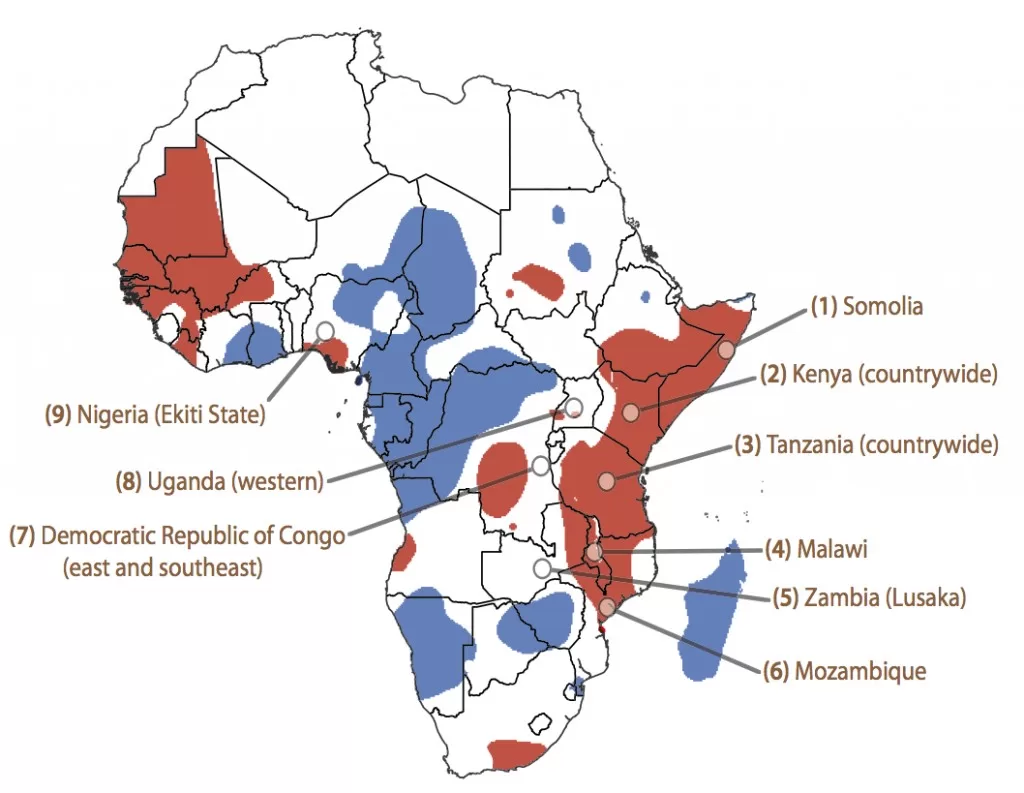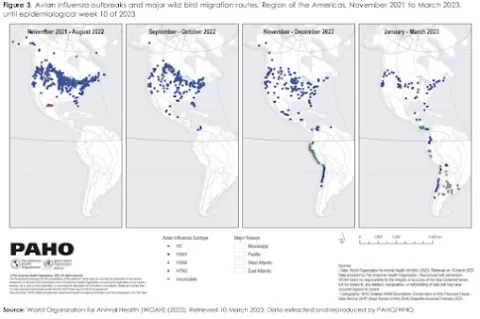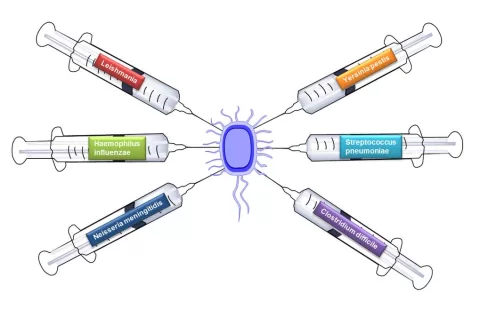Cholera outbreaks in Africa have increasingly become a pressing health crisis, with countries like South Sudan and Angola experiencing alarming cholera cases. According to officials from the Africa Centre for Disease Control and Prevention (Africa CDC), these two nations are at the forefront, contributing to about 90% of the infections reported recently. Despite efforts in cholera response Africa, the disease continues to pose a significant threat, leading to tragic fatalities and overwhelming health systems. In Angola, statistics reveal nearly 18,000 instances of cholera this year alone, prompting urgent calls for effective strategies aimed at preventing cholera Africa. As numbers soar and deaths rise, there’s an urgent need for coordinated efforts to combat this deadly disease across the continent.
The recurring challenge of waterborne illnesses like cholera is especially pronounced in various regions of Africa, leading to increased morbidity and mortality. The need for a strategic and coherent response is evident, as health officials grapple with surging instances of this disease. With South Sudan leading in reported cases, and Angola similarly affected, the situation calls for immediate interventions and measures to curtail the spread. Moreover, collaborative efforts among neighboring nations can enhance the effectiveness of measures aimed at stopping outbreaks. Tackling this epidemic not only centers on immediate healthcare responses but also highlights the importance of robust public health infrastructure in vulnerable communities.
Understanding Cholera Outbreaks in Africa
Cholera outbreaks in Africa have shown a troubling trend, with significant spikes in cases reported across several countries. The Africa CDC indicates that specific regions, particularly South Sudan and Angola, are experiencing high burdens of the disease. These outbreaks underscore the need for immediate and sustained attention to cholera prevention strategies, including improved access to clean water and sanitation facilities. As cholera is largely waterborne, addressing these fundamental issues is crucial to reducing the prevalence of the disease in affected areas.
As of the latest weekly reports, approximately 3,781 cholera cases have been documented, illustrating an alarming increase in infections. This rise is particularly concerning in South Sudan, which has the highest incidence rate of cholera in Africa, followed closely by Angola. Understanding the dynamics of these outbreaks helps inform public health interventions, aiming to mobilize resources and implement preventative measures effectively across the continent.
Cholera Response Strategies in Africa
The Africa CDC is advocating for a coordinated cholera response across the continent, focusing on the most affected countries. A multi-faceted approach is essential to combat the ongoing outbreaks and prevent further spread. This response includes not only immediate treatment and care for current patients but also a long-term strategy to address the societal factors contributing to these outbreaks. Improving hygiene practices, enhancing public health education, and ensuring that health systems are prepared for future cases are vital components of this comprehensive strategy.
Furthermore, the Africa CDC highlights the importance of collaboration among countries facing similar challenges. A regional response that pools resources and shares best practices can drastically improve the effectiveness of interventions. Countries can benefit from data sharing and cohesive planning, which can pave the way for timely responses to emergent outbreaks and enhance overall public health resilience in the face of cholera.
The Impact of Cholera in South Sudan
Cholera remains a critical public health concern in South Sudan, where the incidence rate is alarmingly high. The lack of access to safe drinking water and proper sanitation facilities has exacerbated the cholera situation, making it essential to implement effective cholera response tactics. Recent reports indicate that the majority of cholera cases in South Sudan stem from localized outbreaks, often in vulnerable communities where access to healthcare is limited.
To combat the spread of cholera in South Sudan, authorities are implementing targeted interventions aimed at mitigating the outbreak. These include community health education campaigns, provision of medical supplies, and support to healthcare facilities to manage patients effectively. Coordinated efforts from local health officials and international partners are crucial in response efforts, as they work together to reduce cholera cases and provide life-saving treatment to those affected.
Angola’s Cholera Statistics and Response
Angola has faced a significant cholera outbreak in recent years, with nearly 18,000 cases reported in the current year alone. These statistics highlight not only the urgency of the situation but also the demographic impact of the disease, particularly among children under the age of 15. The distribution of cases indicates that while males comprise a substantial portion of infections, children are notably the most affected group, calling for targeted interventions aimed at protecting this vulnerable population.
In response to the unfolding crisis, Angola has ramped up its efforts to curb the cholera outbreak. Community health initiatives aimed at improving sanitation practices have been introduced, alongside public awareness campaigns to educate the population about cholera prevention measures. Such comprehensive response strategies are crucial for reducing cholera cases and protecting communities from future outbreaks.
Preventing Cholera in Africa: Key Strategies
Preventing cholera in Africa requires a concerted effort to address the root causes of the disease. This can be achieved through a series of key strategies, including improving access to clean water, enhancing sanitation facilities, and implementing public health education initiatives. Education plays a vital role in breaking the cycle of cholera transmission, empowering communities to adopt better hygiene practices and recognize the signs of cholera early.
In addition to infrastructural improvements, the collaboration among African nations in sharing best practices and resources is essential. Coordinated disaster response plans that focus on rapid mobilization in times of outbreaks can significantly mitigate the impact of cholera. By adopting these comprehensive strategies, African nations can work towards reducing the incidence of cholera and ensuring healthier communities.
The Role of Africa CDC in Combating Cholera
The Africa CDC plays a pivotal role in addressing cholera outbreaks across the continent. By providing essential data, technical support, and resources, the organization aids affected countries in their response efforts. Each week, the Africa CDC monitors cholera cases, ensuring that timely and accurate information informs national public health strategies. This surveillance is vital for understanding outbreak patterns and guiding interventions to reduce transmission.
Moreover, the Africa CDC facilitates collaboration among countries facing cholera outbreaks, fostering a region-wide response that leverages shared experiences. This collaborative approach not only enhances the collective capacity to respond to cholera but also promotes the exchange of insights and successful practices that can be applied across different contexts. Through these efforts, the Africa CDC aims to lessen the public health burden of cholera and ensure a more effective response.
Regional Cooperation: Key to Addressing Cholera
Addressing cholera in Africa necessitates regional cooperation among neighboring countries. The interconnectedness of populations across borders means that effective cholera prevention efforts must involve collective action and resource sharing. Countries can learn from one another’s experiences and tailor their responses based on successful interventions implemented in similar contexts.
Regional cooperation can also enhance the ability to mobilize emergency resources quickly in the event of an outbreak. By working together, nations can implement joint health campaigns, share health data, and train healthcare workers on best practices for cholera response. Such collaboration fosters a unified approach, allowing for a stronger, more effective response to cholera and other communicable diseases.
Long-term Solutions for Cholera Resilience
For sustainable cholera prevention in Africa, long-term solutions must be considered. These include investing in water sanitation infrastructure, implementing comprehensive health education, and building robust health systems prepared for outbreak responses. Securing funding for these initiatives requires collaboration with international partners and governments committed to enhancing health outcomes across the continent.
Integrating cholera response with broader health strategies improves overall resilience against communicable diseases. By focusing on long-standing health determinants, such as poverty, education, and nutrition, African nations can create environments that bolster community health and reduce vulnerability to diseases like cholera. This holistic approach not only mitigates current outbreaks but also lays the groundwork for a healthier future.
The Importance of Data in Cholera Management
Data collection and management are crucial in the fight against cholera outbreaks in Africa. Regular reporting of cholera cases helps public health officials understand the scope of the problem and tailor responses accordingly. The Africa CDC’s role in aggregating this data is vital, as it informs policy decisions and guides resource allocation across the continent.
Moreover, analyzing trends in cholera cases, such as those seen in South Sudan and Angola, can provide insights into which preventive measures are most effective. By leveraging data analytics, health authorities can identify potential outbreak hotspots and allocate resources where they are needed most. This data-driven approach is instrumental in enhancing intervention strategies and maximizing public health impact.
Frequently Asked Questions
What are the current cholera outbreaks in Africa?
Cholera outbreaks in Africa continue to pose a significant threat, particularly in South Sudan and Angola, which are responsible for nearly 90% of the reported cases. The Africa CDC reports recent increases in cholera cases, indicative of the urgent need for coordinated cholera response efforts across the region.
How is the Africa CDC addressing cholera outbreaks?
The Africa CDC is implementing a coordinated response to cholera outbreaks in Africa by mobilizing resources, enhancing surveillance, and providing health interventions. This response aims to control cholera cases in the hardest-hit countries, particularly South Sudan and Angola.
What are the cholera statistics for Angola this year?
Angola has reported nearly 18,000 cholera cases this year, with a significant proportion occurring among children under 15. The ongoing cholera outbreak highlights the urgent situation facing Angolan health authorities as they work to manage and prevent further infections.
What strategies are being used to prevent cholera outbreaks in Africa?
Preventing cholera outbreaks in Africa requires a multifaceted approach that includes improving water sanitation, promoting hygiene practices, and vaccination campaigns. Regional cooperation and a coordinated response are crucial for effective cholera prevention measures, as emphasized by the Africa CDC.
What is the cholera situation in South Sudan?
South Sudan currently faces the highest incidence rate of cholera outbreaks in Africa, contributing significantly to overall cases on the continent. The Africa CDC continues to focus efforts on addressing the public health crisis and providing necessary resources to manage the situation effectively.
What impact do cholera outbreaks have on children in Africa?
Children, particularly those under 15 years of age, are disproportionately affected by cholera outbreaks in Africa, with many cases reported in countries like Angola. Ensuring access to healthcare and targeted cholera prevention strategies for this vulnerable population is essential.
How serious is the cholera crisis in the Democratic Republic of the Congo?
The Democratic Republic of the Congo is one of the four hardest-hit countries in Africa regarding cholera outbreaks. The Africa CDC emphasizes the importance of a coordinated response to mitigate the impact of cholera in the region, as the situation remains critical.
What should individuals do to prevent cholera in Africa?
To prevent cholera in Africa, individuals should ensure access to clean drinking water, practice good hygiene, and be aware of the symptoms of cholera. Community awareness and participation in prevention efforts are vital to controlling cholera outbreaks across the continent.
| Key Point | Details |
|---|---|
| Rising Cholera Cases | Cholera cases in Africa continue to rise, with 3,781 cases reported in the last week, an increase of over 9%. |
| High-Burden Countries | South Sudan, Angola, Democratic Republic of the Congo (DRC), and Sudan are the hardest-hit countries. |
| Infection and Death Rates | 103 deaths recorded in the latest week, marking a 78% increase compared to the previous week. |
| Affected Population | In Angola, nearly 18,000 cases have been reported this year, primarily among males and children under 15. |
| Need for Coordinated Response | A coordinated regional response is vital to address the cholera outbreaks in Africa as noted by Ngashi Ngongo from Africa CDC. |
Summary
Cholera outbreaks in Africa are a critical public health issue, demonstrating the urgent need for a coordinated response. With a marked increase in cases and deaths, specifically in regions like South Sudan and Angola, it is essential for health authorities to implement effective strategies better to manage and mitigate these outbreaks. The data shows not just a statistic but a growing crisis that calls for immediate and unified action to protect the lives of those significantly affected.
The content provided on this blog (e.g., symptom descriptions, health tips, or general advice) is for informational purposes only and is not a substitute for professional medical advice, diagnosis, or treatment. Always seek the guidance of your physician or other qualified healthcare provider with any questions you may have regarding a medical condition. Never disregard professional medical advice or delay seeking it because of something you have read on this website. If you believe you may have a medical emergency, call your doctor or emergency services immediately. Reliance on any information provided by this blog is solely at your own risk.








